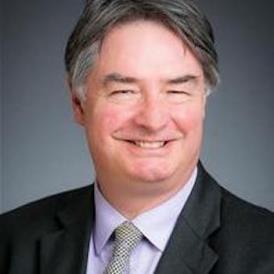Stuart Andrew said he was ‘very disappointed’ by the proposed scrapping of Basildon’s controversial plan
The housing minister has threatened to intervene in an Essex authority which last week controversially confirmed its decision to withdraw its local plan.
Last week the Conservative-run council, which hasn’t had a new local plan since 1998, voted 19-11 in favour to confirm a vote first made in February to withdraw its draft plan. However, it has emerged that housing minister Stuart Andrew (pictured below, left) wrote to the authority prior to the vote saying he was “very disappointed” by the proposed withdrawal.

Basildon’s decision to withdraw its 17,791-home draft plan makes it the latest in a stream of local authorities, including Hertsmere and Welwyn Hatfield, to withdraw local plans in the wake of the government’s decision to pause its planning reforms and pledge to change the way it calculates local housing need.
The plan had been opposed by many in the borough because of its reliance on green belt releases and a high-density redevelopment of Basildon’s town centre. Its decision to withdraw came despite the borough narrowly avoiding intervention in 2017 over slow progress on its local plan, when then housing secretary Sajid Javid warned he was considering stepping in to take over plan-making.
The housing minister’s letter, written the day before the March 3 vote confirming the decision to withdraw the plan, noted Javid’s 2017 threat and the slow plan progress over two decades, but said that “considerable progress” had been made in the last few years. He said: “It is, therefore, very disappointing, having reached this advanced stage of plan preparation, that the Council is now considering withdrawing the emerging Local Plan.
“Not having an up-to-date plan puts Basildon at more risk of appeals and speculative development. An out-of-date plan can result in development being built on a speculative basis with no coordination and limited buy in from local people.”
He said that if Basildon were to withdraw its plan, he will instruct officials to “to carefully monitor your progress on preparing a new local plan.”
“Given my continued commitment to ensuring up-to-date local plans are in place, I must remind the Council that the Government remain prepared to intervene where local authorities fail to make sufficient progress in accordance with the existing statutory powers in the Planning and Compulsory Purchase Act 2004.
“I will carefully consider all appropriate action using available statutory powers, including whether to direct with regard to the local development scheme and inviting the County Council to prepare a local plan for Basildon.”
The government has powers to take over plan-making at local authorities directly, or to direct other bodies such as the Planning Inspectorate or a higher tier authority such as a county council to write a local plan on behalf of an authority that is deemed to have failed to do so.
Stuart Andrews’ letter to Basildon was published by the council as it also published its own letter to the Planning Inspectorate written in the wake of last week’s vote, confirming its withdrawal of its plan.

Andrew Baggott, leader of Basildon Council, also issued a statement in the wake of the vote, saying withdrawal of the plan was “difficult but necessary”.
He said: “I realise this decision may cause unease and uncertainty for residents of the borough, but I want to reassure the public that it is essential if we are to deliver a Local Plan that truly meets our borough’s needs.
He said the local plan in its current form was “bound by algorithms set by the government”, and that, in developing its next plan, Basildon will “continue to challenge the government on the national algorithm and ensure we develop the right plan for our borough.”
He said withdrawal of the plan “does not mean that inappropriate development will be supported” in the borough.
Housing secretary Michael Gove told MPs in November that he wanted to rework the current formula by which local housing need figures are determined, with most expecting the reworked formula to direct more homes to urban areas and the north and midlands.
Boris Johnson told the Conservative Party conference in October last year that new housing should be built “not on green fields, not just jammed in the south east, but beautiful homes on brownfield sites, in places where homes make sense”, leading some South east authorities to pause with housing plans.











No comments yet